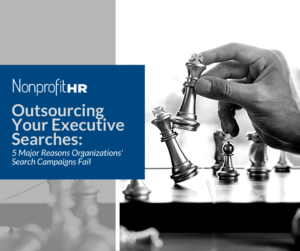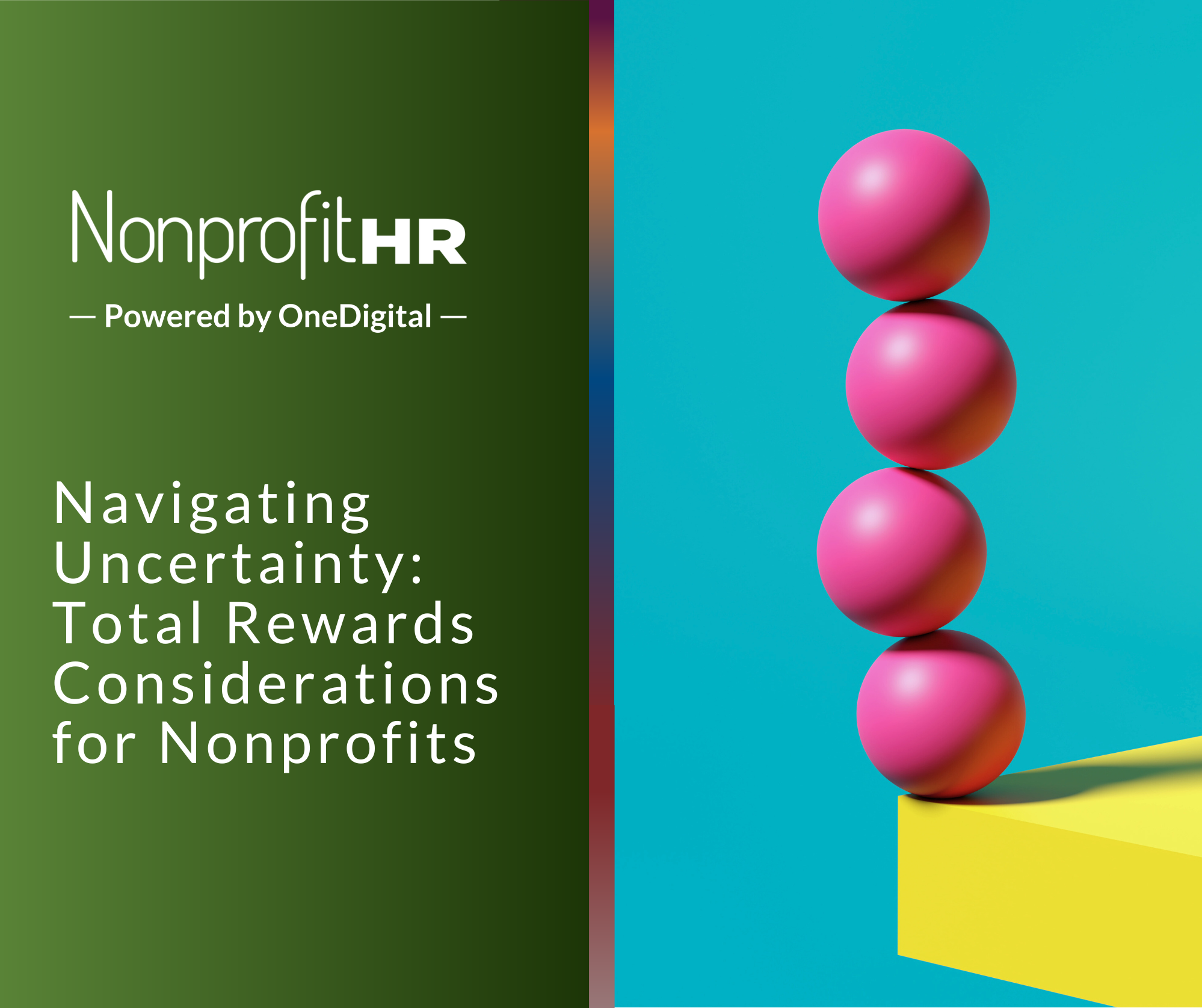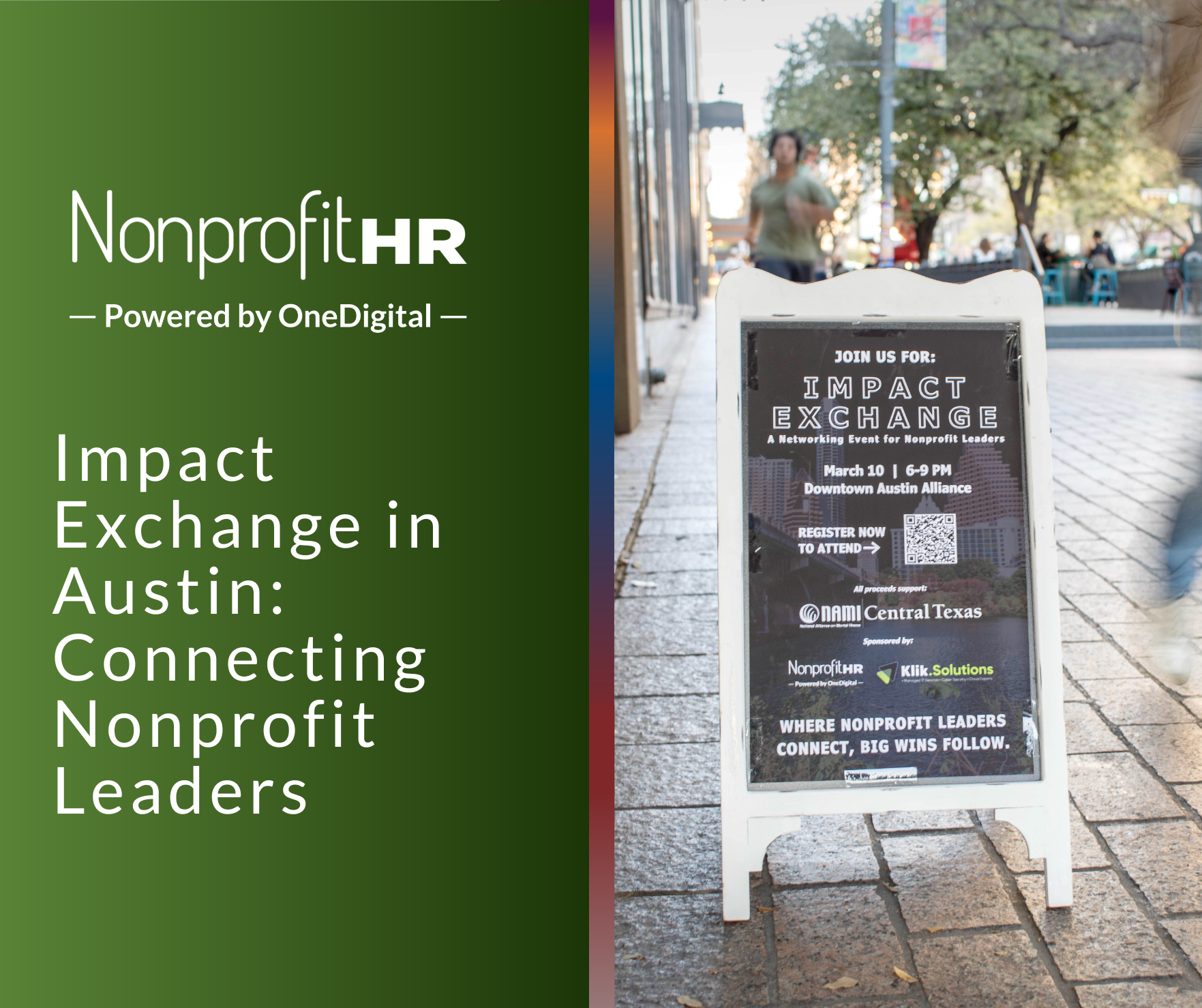WTOP: 5 ways nonprofits can…

Many organizations have done this successfully by outsourcing their leadership search function. Not sure if it’s time to outsource your leadership search? The following five reasons are ones that commonly influence an organization’s decision on whether or not to outsource a leadership search. Which rings true for your current scenario?
1. Our organization lacks trust internally and we are having trouble building consensus around important decisions that address, rather than recycle, the current challenges the organization is facing.
Hiring a new leader is an intense and anxiety-provoking process that requires trust, shared vision and alignment around the 
2. Our internal HR department lacks the skills to conduct a leadership search of this caliber.
Most people miss the fact that executive search is an area of specific expertise. Instead, they incorrectly assume that the 
3. We can’t seem to get the attention of high-caliber executive candidates.
It’s already been stated, but the message bears repeating: Executive search is an area of subject matter expertise. The best 
4. My organization is experiencing a cultural shift and it’s practically impossible for someone in the organization to translate that to an executive candidate.
It’s difficult to teach what one does not know. Often times, an organization will make a statement and forget that the 
5. We’ve tried it on our own before and it never works out.
If you find yourself jaded and exhausted from the executive search process, you are not alone. Searching for a new CEO or executive director is the least favorite duty of every board member I meet; and hiring a new one after an executive leaves 
As an industry leader, you’ve seen that hiring the wrong c-suite executive can wreak irreversible havoc. Aside from the time required to find good leaders, today’s search is just complicated, especially regarding negotiations around total compensation and rewards. Search experts know this and are pros at factoring these elements into the search process to keep it on time and on track. It’s not enough to be good at executive search, the process for identifying your next CEO must be stellar! Your lead internal recruiters likely have limited bandwidth to conduct searches but mid-sized search teams, on the other hand, have the capacity to complete a minimum of four searches per month!
One fatal flaw that internal search teams make when going it alone is posting ineffective job ads in all the wrong places. For one, very rarely do job postings result in viable candidates. Second, the best mission-driving leaders are not seeking a new role—in fact, they may be in their dream job! And because job ads tend to be the internal recruiter’s number one resource, they simply won’t capture the attention of your ideal leader! Having been an internal recruiter and now leading a team of professionals who were also internal recruiters, I know that internal recruiters simply don’t have time to do the work that goes into uncovering the passive candidates that are a perfect fit for a role or the nuances that deem one candidate a better fit than the other. It is incredibly time-intensive to accommodate top candidates, and internal recruiters, more often than not, find this process daunting. Why? Because when it comes to fielding executive talent, internal recruiters don’t have the time nor tools to shepherd these fast-flying influencers through a top-notch process.
Several years ago, I was leading a search when the top candidate’s child was attending an especially competitive school for gifted students. The candidate had limited time, but I was able to create an exploratory conversation with her, and she eventually accepted the position after I flew out several times to meet with her. A few of those meetings didn’t occur because she had emergency meetings pop up just as I arrived! My determination did not wane, however. Had I not gone the extra mile to accommodate this leader’s incredibly busy schedule, I would not have been successful at securing her attention. Years later this leader still proved to be the absolute best pick for the organization. She is still thriving in this role and has led the organization through major shifts. Experienced search professionals understand the unique dynamics of working with executives and have the time and resources to see the acquisition process through to the end.
Experienced search professionals know how to navigate impossible schedules, but we also understand that taking on a new executive role is the equivalent of making a major life change. It’s important that an internal or external search team knows that they’re a critical player in the process. Many times, the news of a high-profile leader’s arrival can cause ripple effects that extend beyond the workplace. Social impact leaders impact communities, industries and global causes. Leaders are not only tasked with learning their new role, exploring immediate opportunities to make early impacts, setting a new culture, putting out any immediate fires and getting to know their new board. They’re also juggling personal responsibilities, helping those in their personal and professional sphere of influence adjust to their new role and lending their skills to valuable causes. An experienced executive recruiter knows that candidates are aware of how their lives will change and will expect a search process that makes it easier for them to entertain exploratory conversations.





























